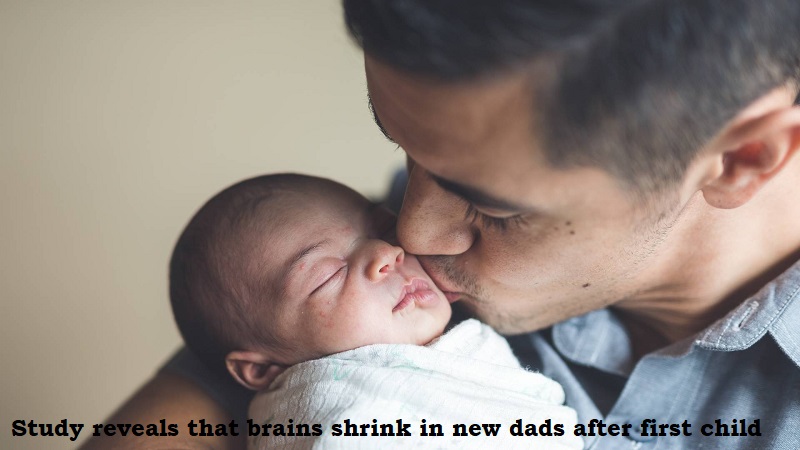
Parents often feel tired when caring for their children, as raising kids can be demanding both physically and emotionally. It’s important for parents to take care of themselves to prevent burnout. However, a recent study suggests that there are certain things that are out of their control, such as brain shrinkage. The study found that new dads experience brain shrinkage after the birth of their first child. This phenomenon has previously been observed in new moms, but this study is the first of its kind to demonstrate that it also occurs in dads, although in a more subtle way.
Scientists believe that the changes in the brains of new parents are essential for becoming good parents. The study’s senior author, Darby Saxbe, a psychologist at the University of Southern California, says that this change is positive and refers to it as neuroplasticity, which is the brain’s ability to adapt to new circumstances. The brain continually removes old synapses to make way for new ones as we age, and this remodeling takes place when we learn new things, pick up new abilities, or go through life-changing experiences such as becoming a parent.
The effect on fathers is more subtle than on mothers, with a reduction of about one percent in the brain’s cortical regions. This reduction is most notable in the visual and default mode networks, which are involved in attention and empathy. However, this reduction can help new dads understand and anticipate their baby’s needs.
The study analyzed magnetic resonance images (MRIs) of the brains of 40 first-time fathers, 20 from Barcelona and 20 from Los Angeles. Although the study’s results were small and subtle, an expert who was not involved in the research is excited about the findings. The study suggests that these neurological changes can also help mothers to form a stronger emotional bond with their babies.
The authors of the study hypothesize that individual variances in parental participation, cultural settings, and paternity leave laws may cause differences between participants. Experts suggest that the next step in understanding how our brains react to parenthood is to separate out how these cultural influences interact. Understanding the brain is critical to understanding the experiences that parents have during this time.

Post Your Comments